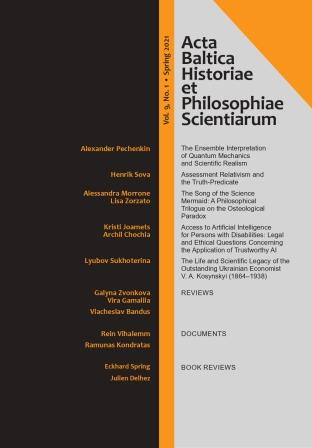Access to Artificial Intelligence for Persons with Disabilities: Legal and Ethical Questions Concerning the Application of Trustworthy AI
Access to Artificial Intelligence for Persons with Disabilities: Legal and Ethical Questions Concerning the Application of Trustworthy AI
Author(s): Kristi Joamets, Archil ChochiaSubject(s): Human Rights and Humanitarian Law, Ethics / Practical Philosophy, Philosophy of Science, Health and medicine and law, ICT Information and Communications Technologies, EU-Legislation
Published by: Tallinna Tehnikaülikooli õiguse instituut
Keywords: artificial intelligence; digitalisation; ethics; ethics of technology; trustworthy AI;
Summary/Abstract: Digitalisation and emerging technologies affect our lives and are increasingly present in a growing number of fields. Ethical implications of the digitalisation process have therefore long been discussed by the scholars. The rapid development of artificial intelligence (AI) has taken the legal and ethical discussion to another level. There is no doubt that AI can have a positive impact on the society. The focus here, however, is on its more negative impact. This article will specifically consider how the law and ethics in their interaction can be applied in a situation where a disabled person needs some kind of assistive technology to participate in the society as an equal member. This article intends to investigate whether the EU Guidelines for Trustworthy AI, as a milestone of ethics concerning technology, has the power to change the current practice of how social and economic rights are applied. The main focus of the article is the ethical requirements ‘Human agency and oversight’ and, more specifically, fundamental rights.
Journal: Acta Baltica Historiae et Philosophiae Scientiarum
- Issue Year: 9/2021
- Issue No: 1
- Page Range: 51-66
- Page Count: 16
- Language: English

